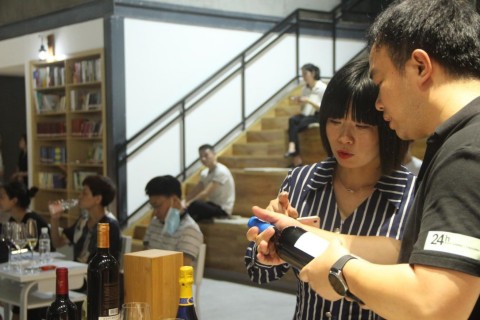Chengdu blijft handelsbetrekkingen en culturele uitwisselingen versterken om de vriendenkring over de hele wereld uit te breiden
CHENGDU, China– (BUSINESS WIRE) – De spoorlijn Chengdu-Europa beslaat meer dan 10.000 kilometer over talloze rivieren en bergen en vervoert goederen naar grote aantallen mensen over de Euraziatische landmassa. Met de toegenomen handel worden de culturele banden tussen Chengdu en Europa ook sterker. Tegen deze achtergrond is Chengdu-Eurasia National Pavilion Cluster (CENPC) ontstaan in het Qingbaijiang-district van Chengdu om de handel en culturele uitwisselingen verder te bevorderen.
ENPC is een belangrijk platform voor vakbeurzen en culturele uitwisseling tussen landen langs de Belt and Road. Met handelsbevordering als basis, beoogt het project, dat naar verwachting meer dan 40 nationale paviljoens zal bevatten, de wereldwijde samenwerking van Sichuan op gebieden als cultuur, talent, onderwijs en wetenschap en technologie, en tegelijkertijd de internationale ontwikkeling van Chengdu te stimuleren.
Chengdu Continues to Enhance Trade Links and Cultural Exchanges to Expand Circle of Friends Around the World
CHENGDU, China–(BUSINESS WIRE)– The Chengdu-Europe railway line spans over 10,000 kilometers across countless rivers and mountains, transporting goods to vast numbers of people across the Eurasian landmass. With increased trade, cultural links between Chengdu and Europe are also growing stronger. Against this backdrop, Chengdu-Eurasia National Pavilion Cluster (CENPC) has emerged in the Qingbaijiang District of Chengdu to further promote trade and cultural exchanges.
This press release features multimedia. View the full release here: https://www.businesswire.com/news/home/20201127005270/en/

Head of CENPC’s pavilion for France and the Netherlands Xu Dandan at work (Photo: Business Wire)
CENPC is an important platform for trade exhibition and cultural exchange between countries along the Belt and Road. With trade promotion as a foundation, the project, which is expected to feature over 40 national pavilions, aims to deepen Sichuan’s global cooperation in fields such as culture, talent, education, and science and technology, while catalyzing Chengdu’s international development.
“The design of our pavilions and our operating philosophy is based primarily on cultural aspects, supported by trade. We hope to use these national pavilions as a comprehensive platform for activities ranging from product showcase and sale to cultural exchange and talent development,” said Xu Dandan, Director of the CENPC’s France-Netherlands National Commodity Cultural Center and Deputy General Manager of Sichuan Rongou Zhilian Technology. So far ten countries have already established themselves in the zone. This includes one pavilion, the largest in the cluster, that represents two countries and three cities – Tilburg from The Netherlands and Paris and Bordeaux from France.
“National Pavilions create immersive experiences for consumers. For example, the Bordeaux City Pavilion features a recreation of a Bordeaux wine cellar to provide people with a more intimate experience, linking to the culture, history, and geography behind the products,” explained Xu. “In the Tilburg area, we created a two-level space based on a library in Tilburg. The first floor features a public space for activities in the gallery, while the second floor is a place for anyone to read and relax. We integrate the most important native cultural elements into how we design and run each venue so people can get a feel for the local culture.”
Apart from promoting products and cultural exchanges, CENPC aims to deepen people-to-people links and has already launched related cooperation projects in education and business. It has begun to work with some foreign universities, using venues and companies in the cluster as a base for student internships, which can provide a platform for entrepreneurship and attract them to work here.
“Foreign talent is crucial for the international development of Qingbaijiang District. Coming here will allow more foreigners to understand Chengdu and further understand China,” said Xu.
“The city’s environment is becoming more and more conducive to business, and Chengdu’s population is growing more open-minded as the city becomes more international,” she observed.
View source version on businesswire.com: https://www.businesswire.com/news/home/20201127005270/en/
Contacts
Wei Wang
